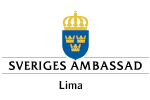CREDIT SUISSE / Online Publications - 27.04.2009
Legal reforms aimed at granting property rights to the world’s poorest can eradicate poverty and boost economic growth, says the Peruvian economist Hernando de Soto. As long as these people cannot prove what they own, they cannot secure credit and capital, and expand their businesses, he says in an interview.
Dorothee Enskog: Why are property rights crucial when it comes to eradicating poverty?
Hernando de Soto: They are important because they document where things are located and to whom they belong. We share our economic world with over six billion other people, which means we do business with billions of people we don't know. Essentially, the only documents that allow you to identify your counterparties and to pool various resources are property titles. That is how we get to know each other. The system breaks down without clarity as to ownership.
How many people do you estimate are unable to claim their property as assets?
A little over two billion people participate in the legitimate globalized economy: the citizens of North America and Europe, and small elites in developing countries and former Soviet Socialist Republics. The remaining four billion live outside the system, in an extra-legal economy, if you will, in the sense that they cannot prove what they own, where they are employed, or what businesses they run.
When and why did you begin championing property rights for the poor?
When I returned to my native country of Peru as a young adult, I was surprised by the extent to which developing countries had turned inward. I noticed how difficult it was to obtain documents from the authorities: For instance, it took me three years just to get a street number for my house. I started wondering if this type of legal transaction was even more difficult for the poor, so I hired a professor and some students to set up a small company in the middle of a slum in Lima. Their objective was to create a legal shirt-manufacturing business with two sewing machines, open eight hours a day. It took them 279 days to obtain the permit to operate. In Egypt, where a similar trial was carried out, it took 549 days to set up a bakery. Although the relevant laws are clearly in place, they are not accessible to many people. And to be able to grow, you need to be able to identify yourself in the marketplace, and thus gain access to credit and capital.
Have you seen any improvement over the past decades?
Generally speaking things have gotten better during the last 20 years. Peru, which has adopted a good amount of reforms, has been growing at about 10 percent for a few years now. The country is doing much better, considering that a lot of its growth is due to construction, mining and exports of agro- industrial goods. These sectors would not have been able to grow without solid property rights to land and mines. But there is still an enormous amount of work to be done. You not only need property rights as such, they must also be recorded, written up as rules, and implemented in a very specific manner.
What else is crucial to building an inclusive and modern market economy?
Many elements can be improved if you define the word property to include businesses as well. If you create property rights to businesses, they must be able to attract investors by issuing shares. Giving investors control over equity is like giving them a right to the components of a business. Businesses must also be granted limited liability. If an owner can be sure that an investment in his business will not detract from his investments elsewhere, he will do much better. Asset shielding – earmarking capital exclusively for a business – is also necessary: If the business goes into debt, the owner should not be able to run away with the capital. Businesses must also be organized internally, with a clear hierarchy. By this I mean that a CEO, a CFO and employee rights as well as other elements are necessary. A survey in Latin America found that only 10 percent of all businesses meet all of the above-mentioned criteria. The situation is probably similar in most developing countries.
You are the president and founder of ILD (Instituto Libertad y Democracia) in Peru, which promotes the agenda you describe. Could you tell us more about ILD?
It was set up in 1984 as a foundation to do research. It has since evolved from think tank to action tank. Shortly after our first publications, we started getting calls from the Peruvian government, followed by other governments. We investigate the size of countries' extra-legal economy and make plans for reforms. We have worked in 20 countries in Latin America, Africa, the Middle East, the former Soviet Union and Central Asia. We've even been called into developed countries, such as the US and Canada. In the US, for instance, more than 30 million people do not have fungible title to their land – mainly on the Mexican border, in the inner cities and among native populations. We didn't take up these mandates, however, as they would have been too complex for us.
How does ILD operate?
We typically get a request for our expertise from the country's head of state. ILD then sends in a small team, and recruits much larger teams locally. We first do a diagnosis, telling the head of state how big the country's extra-legal economy is and what characteristics it has, before we design reforms. This is followed by an implementation phase. As we advance in the project, there is a tendency on the part of them to push us out, which is a healthy sign. The local teams then take over our work.
Are governments ready to listen and implement the advice ILD gives them?
The people who are keen to call us in are politicians with a mandate to change the situation in their country. They are sometimes shocked by our diagnosis, but in a pleasant way, because our diagnosis explains why things don't work in their country. If we are able to demonstrate that their country cannot prosper and operate properly without the rule of law, although it's a shock for them to hear, they also welcome the news, since it means there is a solution to their problems. Those who benefit from the red tape of the status quo – very small public and private bureaucracies – don't always like us too much.
Which countries still need to build up an inclusive market economy?
All countries. It's also a challenge in the developed world. Take the current subprime crisis as an example. The developed world has introduced an estimated 600 trillion dollars worth of derivatives into the financial markets, derivatives that are not recorded in a central property register. That is the reason why these toxic assets cannot be taken out of the financial system. We don't know where these derivatives are and how many they are. If we had applied the same rules to derivatives as we do to the registration of equities and airplanes, for example, we would know where they are. This has led to a global recession, a lesson that should not be forgotten.
You just mentioned the subprime crisis. What are the main consequences of this crisis for the world's poorest inhabitants?
We'll find out, as the crisis isn't over yet. It's not a matter of a bubble bursting. Only about 13 trillion dollars, euros, francs and other currencies are available in cash. The remainder is to be found in the form of property documents such as mortgages, mortgage-backed securities, or credit default swaps, whose volumes are much larger than the cash available. But the credibility of such titles has been deeply affected by the ongoing subprime crisis and the attendant credit crunch. The availability of credit has thus tremendously contracted, affecting anyone who needs a loan – all the way down to the poorest of the poor.
What is the solution?
The toxic assets need to be taken out of the financial system as soon as possible, in order to restore trust. That would be the best way to fight the recession.
Is it realistic to track all of these toxic assets?
Why not? We register everything, from births and cars to bank accounts. There is no need for a global register of toxic assets, but some uniformity in their reporting is key. An economy that doesn't register its components properly is called a shadow economy, the extra-legal economy. Such economies don't work because there is no reliable information available.
How do you view microfinance initiatives?
A lot of people have benefited from microcredit, and that is good. It reaches peoples that traditional banking could not get to. Is it the final solution? No, but it is an extremely good beginning. Microcredits won't defeat the recession, build a nuclear plant or boost development. That's where macrocredits become necessary.


